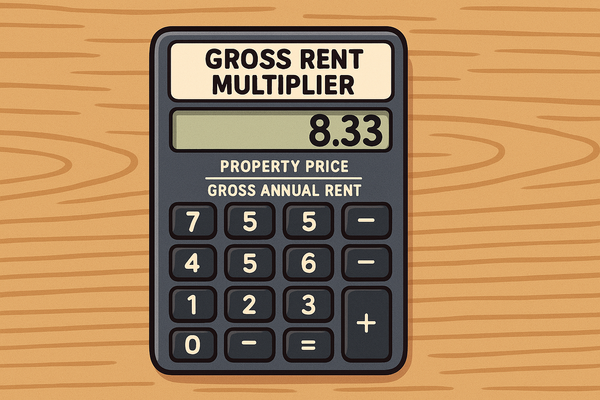Nebraska Squatters Rights Guide: Understanding Adverse Possession Laws
Nebraska law allows squatters to gain legal title to property through adverse possession if they meet specific requirements over a 10-year period.

In Nebraska, the law allows squatters to potentially gain legal ownership of a property if they've met specific requirements over the course of ten years. And while you may think that it's highly unlikely or uncommon for that to happen, the truth is... it's not. In this article, I'll share true squatter stories that have taken place in Nebraska.
Ready to learn about squatters rights in Nebraska? Let's get started.
Introduction to Squatters' Rights in Nebraska
- Definition of squatters vs. trespassers in Nebraska: In Nebraska, a squatter is someone who occupies a property without legal ownership or permission, while a trespasser is someone who enters property without permission but doesn't claim ownership rights.
- Basic overview of adverse possession in Nebraska: Nebraska law allows squatters to gain legal title to property through adverse possession if they meet specific requirements over a 10-year period.
- Why property owners should understand these laws: Understanding Nebraska squatters rights can help property owners protect their real estate investments and prevent potential loss of property through adverse possession.
- Historical purpose of adverse possession laws: These laws originated to ensure land was productively used and to resolve boundary disputes when legal documentation was less reliable.
Squatter Snippet: Real Case from Nebraska
In 2022, Nebraska property owner Samuel Johnson returned from an 18-month overseas work assignment to discover a family had moved into his vacant rural property outside Omaha. They had changed the locks, established utility accounts in their name, and claimed they had verbal permission from a "relative" of Johnson's.
The squatters had made improvements to the property, including repairs to a damaged barn and fence line, which they later used to argue they had established possession. The case took 6 months to resolve through the courts, costing Johnson over $22,000 in legal fees and property damage.
This case highlights why understanding Nebraska's squatter laws is critical for property owners, especially those who leave properties vacant for extended periods.
Key Timeline: Statutory Period in Nebraska
- Required occupation period: 10 years in Nebraska
- Continuous possession requirement: Occupation must be without significant interruption
- Comparison with neighboring states:
- Iowa: 5 years
- Missouri: 10 years
- Kansas: 15 years
- Timeline exceptions:
- Military service may extend the period
- Legal disability (minors, mental incompetence) can extend the period to 20 years
CHART: Adverse Possession Timeline Comparison
| State | Required Years | Special Conditions |
|---|---|---|
| Nebraska | 10 years | Strict evidence requirements |
| Iowa | 5 years | Tax payment required |
| Missouri | 10 years | Color of title may reduce to 7 years |
| Kansas | 15 years | Payment of taxes strengthens claim |
| South Dakota | 20 years | Continuous, exclusive possession required |
Quick Guide for Property Owners
Nebraska property owners face a significant risk from adverse possession claims, with a 10-year statutory period creating a substantial window of vulnerability. The Nebraska Supreme Court has consistently upheld adverse possession claims when all requirements are met, even in cases where the legal owner has paid property taxes throughout the period.
In a notable 2023 case, a Lincoln homeowner lost a portion of their land to a neighbor who had maintained and exclusively used the disputed area for over a decade. This decision shocked many Nebraska property owners who mistakenly believed paying taxes alone would protect their property rights.
- Know your timeline: Squatters can claim rights after 10 years of continuous occupation under Nebraska law
- Documentation matters: Keep property records, tax receipts, and inspection logs to prove ownership activity
- Regular monitoring required: Vacant properties are most vulnerable to squatter occupation
- Legal obligation: Self-help eviction methods are illegal in Nebraska and can result in lawsuits
- Act quickly: The longer squatters remain, the stronger their potential adverse possession claim becomes
- Proper notices: Follow legal procedures when removing unauthorized occupants to avoid legal complications
Prevention: Protecting Your Property
Nebraska's unique landscape of rural and urban properties creates diverse challenges for property owners. According to Nebraska law enforcement reports, abandoned farm structures and vacant urban properties are most vulnerable to squatter occupation.
Nebraska courts give significant weight to evidence of regular property monitoring when evaluating adverse possession claims. Properties that appear neglected or abandoned are considered prime targets for squatters, as courts may view the owner's apparent disinterest as a factor supporting an adverse possession claim.
- Regular inspections:
- Visit property at least quarterly
- Document each visit with dated photos/notes
- Effective security measures:
- Secure all entry points with quality locks
- Consider security systems with remote monitoring capabilities
- Install motion-activated lighting around property perimeters
- Clear signage:
- Post "No Trespassing" signs visibly in accordance with Nebraska Revised Statutes
- Mark property boundaries clearly to prevent boundary encroachment issues
- Property management options:
- Hire professional management for vacant properties
- Consider short-term rental options for long-term vacancies to maintain occupancy
- Documentation practices:
- Keep property tax payment records
- Maintain utility connections to demonstrate continued interest
- Take dated photographs regularly to document condition and maintenance
CHART: Property Risk Assessment Matrix
| Property Type | Risk Level | Recommended Prevention | Estimated Cost |
|---|---|---|---|
| Vacant Land | High | Fencing, signage, quarterly inspections | $500-$3,000 |
| Abandoned Building | Very High | Security system, property management, monthly inspections | $1,000-$5,000 |
| Seasonal Property | Medium | Smart home security, neighbor monitoring, bi-monthly checks | $500-$2,000 |
| Investment Property | Medium | Professional property management, tenant screening | $800-$3,000 |
Removing Squatters: Step-by-Step Process
Nebraska's legal process for removing squatters follows specific procedures outlined in Nebraska Revised Statutes §76-1401 to §76-1449, known as the Uniform Residential Landlord and Tenant Act.
Unlike some neighboring states, Nebraska does not have expedited processes specifically for squatter removal. Instead, property owners must use standard eviction procedures, which can be time-consuming.
The Nebraska Legislature is currently considering bill LB 433, which would create more efficient removal procedures, but current law requires following the formal eviction process. Attempting "self-help" evictions can result in legal penalties of up to $1,000 plus actual damages under Nebraska law.
- Document the situation:
- Take photos/video of occupation
- Gather property ownership documents, including deed and tax records
- Issue proper written notice to vacate
- File appropriate legal complaint:
- Wrongful detainer action in Nebraska county court
- Include all required documentation proving ownership
- Attend court hearing
- If successful, obtain order of restitution/eviction
- Sheriff enforces removal, not property owner
- What NOT to do:
- Do not change locks yourself
- Do not shut off utilities
- Do not remove squatter's belongings
- Do not threaten or intimidate
- Do not use physical force
- Timeline expectations:
- Notice period: 3-30 days depending on circumstances
- Court processing: 2-6 weeks
- Eviction enforcement: 7-10 days after judgment
CHART: Eviction Process Timeline
Nebraska's eviction timeline is governed by the Uniform Residential Landlord and Tenant Act (Nebraska Revised Statutes §76-1401 to §76-1449) and Nebraska Rules of Civil Procedure. According to Nebraska court data from 2022-2024, the average eviction process takes 45-60 days from start to finish.
In Douglas County, which includes Omaha, the timeline can extend to 90 days due to court backlogs. Property owners should be prepared for potential delays, especially if the squatter contests the action.
While no expedited process currently exists specifically for squatters, bill LB 433 under consideration would allow law enforcement to issue citations requiring suspected squatters to provide documentation proving legal residency within three business days.
[Discovery of Squatter] → [Documentation: 1-2 days] → [Notice to Vacate: 3-30 days] →
[Court Filing: 1 day] → [Waiting for Hearing: 2-4 weeks] → [Court Hearing: 1 day] →
[If successful, Wait for Order: 3-5 days] → [Sheriff Enforcement: 7-10 days] → [Property Returned]
Total estimated timeline: 45-90 days
Legal Requirements for Adverse Possession
Nebraska courts apply the "OCEAN" criteria (Open, Continuous, Exclusive, Adverse, Notorious) when evaluating adverse possession claims, but with strict evidence standards.
According to the Nebraska Supreme Court's interpretation in recent cases like Poullos v. Pine Crest Homes (2019), claimants must prove each element by "clear and convincing evidence"—a higher standard than the "preponderance of evidence" used in many civil matters.
Nebraska courts place particular emphasis on visible, physical acts of ownership that would be obvious to the community and the true owner. The burden of proof rests entirely on the person claiming adverse possession, requiring substantial documentation of their possession history.
- Hostile Claim
- Definition: Possession without the owner's permission
- Examples in Nebraska case law: Using property without asking, erecting fences, making improvements
- Common misunderstandings: Paying rent or having permission eliminates this element
- Actual Possession
- Physical presence on the property
- Evidence courts look for: Building structures, cultivation, maintenance activities
- Open and Notorious Possession
- Visible use that would be obvious to the true owner
- Documentation and evidence: Community witnesses, visible improvements
- Exclusive Possession
- Single-party occupation excluding others, including the true owner
- Exceptions: Shared use generally defeats this requirement
- Continuous Possession
- Uninterrupted occupation for the full 10-year statutory period
- Allowed exceptions: Brief, reasonable absences (vacations, etc.)
- Special circumstances: Military service may pause the time period
CHART: Adverse Possession Requirements Matrix
| Requirement | Required in Nebraska? | Evidence Courts Accept | Common Pitfalls |
|---|---|---|---|
| Hostile Claim | Yes | Improvements without permission, exclusionary acts | Having permission or lease arrangement |
| Actual Possession | Yes | Buildings, cultivation, maintenance | Occasional visits without physical improvements |
| Open & Notorious | Yes | Visible use, witness testimony, public recognition | Hidden or concealed use |
| Exclusive | Yes | Preventing others from using the property | Sharing use with owner or others |
| Continuous | Yes | 10 years of uninterrupted use | Significant gaps in occupation |
Frequently Asked Questions
- "Can I remove squatters myself?"
- No, self-help eviction is illegal in Nebraska
- Must follow legal eviction process through the courts
- "Do squatters have to pay property taxes?"
- Tax payment is not explicitly required in Nebraska for adverse possession
- However, paying taxes significantly strengthens an adverse possession claim
- "What's the difference between a squatter and a trespasser?"
- Trespassers: Short-term unauthorized presence with no claim of right
- Squatters: Ongoing occupation with potential adverse possession claim
- "Who should I contact first - police or sheriff?"
- For immediate safety concerns: Police
- For eviction enforcement: Sheriff
- "Can squatters claim abandoned property?"
- Yes, if all adverse possession requirements are met for 10 years
- Property abandonment may actually strengthen their claim
- "How quickly can I evict a squatter?"
- Typical timeline: 45-90 days
- Factors affecting timeline: court schedule, contested claims, evidence quality
CHART: Decision Tree for Property Owners
Nebraska's specific laws create important distinctions between criminal trespass and civil squatting situations. Under Nebraska Revised Statutes §28-520 and §28-521, criminal trespass requires immediate law enforcement response, while established squatting falls under civil law.
According to the Douglas County Sheriff's Office guidance, property owners should evaluate how long the unauthorized occupants have been present before determining the appropriate response.
Recent occupants (less than 24 hours) can often be removed as trespassers, while established occupants require formal eviction procedures.
Discovered Someone on Your Property
├── Emergency/Dangerous Situation? → Yes → Call Police
│ └── No ↓
├── Recent Entry (Less than 24 hours)? → Yes → Call Police (Trespasser)
│ └── No ↓
├── Evidence of Established Occupation? → Yes → Legal Eviction Process Required
│ └── No ↓
└── Uncertain Situation → Consult Attorney Before Taking Action
Recent Legislative Changes in Nebraska
Nebraska's approach to squatters' rights and adverse possession has seen significant legislative attention in recent years. In 2024, State Senator Brad Von Gillan introduced bill LB 433, which would create a more efficient process for handling squatter situations.
The bill would authorize law enforcement to issue citations to suspected squatters, who would then have three business days to provide documentation proving legal residency. If passed, this legislation would significantly alter the current process, which requires lengthy civil eviction procedures. The bill passed its first-round approval in February 2025 but still requires further legislative approval before becoming law.
- Recently Passed Laws:
- Nebraska Revised Statutes §25-202 Amendment (2023): Clarified evidence standards for adverse possession claims
- Impact on property owners: Requires "strict, clear, and convincing evidence" of all elements
- Effective date: January 1, 2024
- Pending Legislation:
- LB 433 (Anti-Squatting Bill): Currently in second round of debate
- Proposed changes: Allows law enforcement to issue citations to suspected squatters
- Expected vote/implementation: Final vote expected by April 2025
- Legislative Trends:
- Nebraska is moving toward stronger property owner protections
- Aligns with national trends to make squatter removal more efficient
State-Specific Considerations
- Color of Title in Nebraska:
- Definition: Document suggesting ownership that is actually invalid
- Impact on statutory period: No reduction in 10-year requirement
- Documentation requirements: Court may view more favorably than naked possession
- Burden of proof requirements:
- Squatter must prove all elements of adverse possession by "clear and convincing evidence"
- Higher standard than in many neighboring states
- Recent legal developments:
- Schmieding v. Smith (2022): Reinforced that payment of taxes alone doesn't prevent adverse possession
- LB 433 (pending) would create expedited removal process
- How Nebraska differs from neighboring states:
- No tax payment requirement (unlike Iowa)
- Longer statutory period than Iowa (10 vs. 5 years)
- Stricter evidence requirements than Missouri
CHART: Nebraska vs. Neighboring States Comparison
| Factor | Nebraska | Iowa | Missouri | Kansas | South Dakota |
|---|---|---|---|---|---|
| Statutory Period | 10 years | 5 years | 10 years | 15 years | 20 years |
| Color of Title Impact | No reduction | No reduction | Reduces to 7 years | No reduction | No reduction |
| Tax Payment Required | No | Yes | No | No | No |
| Special Conditions | Strict evidence standard | Color of title | Reduced time with deed | None | None |
| Strictness Rating | 3/5 | 4/5 | 2/5 | 3/5 | 4/5 |
Advanced Legal Process
- Court proceedings typically take place in county court where the property is located
- Evidence requirements include testimony, documentation, and proof of continuous occupation
- Potential outcomes range from complete dismissal to granting ownership through adverse possession
- Monetary judgments may include damages for wrongful occupation or property damage
- Impact on property title requires recording the court judgment with the county register of deeds
- Special provisions exist extending the timeline to 20 years for property owners with legal disabilities
Real-World Examples
The Schmieding Case
In a notable Nebraska adverse possession case, the Schmieding family purchased land in Seward County in 1987 that included a driveway spanning part of their forty acres. The boundary line was not clearly marked, and neighbors used the driveway for farming purposes. In 2006, the Schmiedings discovered the true boundary through a survey, but by then, the neighbors had been using the driveway for nearly 20 years.
When the Schmiedings attempted to modify the driveway in 2010, the neighbors filed suit claiming adverse possession. Despite the Schmiedings paying all property taxes as the record owners, the court ruled that the neighbors had acquired the parcel through adverse possession due to their continuous, open, and notorious use of the driveway for over 10 years.
The "Granny" Weatherford Story
Perhaps the most remarkable adverse possession case in Nebraska history involves Cornelia "Granny" Weatherford, who claimed land in North Omaha's "Squatter's Row" in the 1860s. Despite changes to Nebraska laws in 1897 that made adverse possession more difficult, Weatherford remained on her property until her death in the late 1930s—approximately 70 years of continuous occupation.
While most residents of the unique community known as Squatter's Row gradually left when laws changed, Weatherford's extraordinary persistence serves as a testament to the historical power of adverse possession claims in Nebraska.
Resources
- Current Nebraska Squatters Rights Laws:
- Nebraska Legislature: Nebraska Revised Statutes §25-202
- Last updated: January 2024
- Recent/Pending Legislation:
- Nebraska Legislature: LB 433 Status
- Bill status: In second round of debate
Legal Disclaimer
DISCLAIMER: The information provided in this guide is for general informational purposes only and should not be construed as legal advice on any subject matter. The content contained herein does not establish an attorney-client relationship.
This guide about Nebraska squatters' rights and adverse possession laws is intended to provide general information and should not be relied upon as legal advice. Laws and regulations regarding property rights, adverse possession, and eviction procedures vary by jurisdiction and may change over time. The information presented here may not reflect the most current legal developments or address your specific situation.
No reader should act or refrain from acting based on information in this guide without first seeking professional legal advice. Property owners dealing with squatters should consult with a qualified attorney licensed to practice in Nebraska for advice tailored to their particular circumstances.
The authors, publishers, and distributors of this guide expressly disclaim all liability in respect to actions taken or not taken based on any or all of the contents of this document. They shall not be responsible for any errors or omissions in this information or any consequences arising from its use.
This guide is provided "as is" without warranty of any kind, either express or implied, including but not limited to implied warranties of merchantability, fitness for a particular purpose, or non-infringement.
Copyright © 2025 LandlordDoc.com. All rights reserved.





